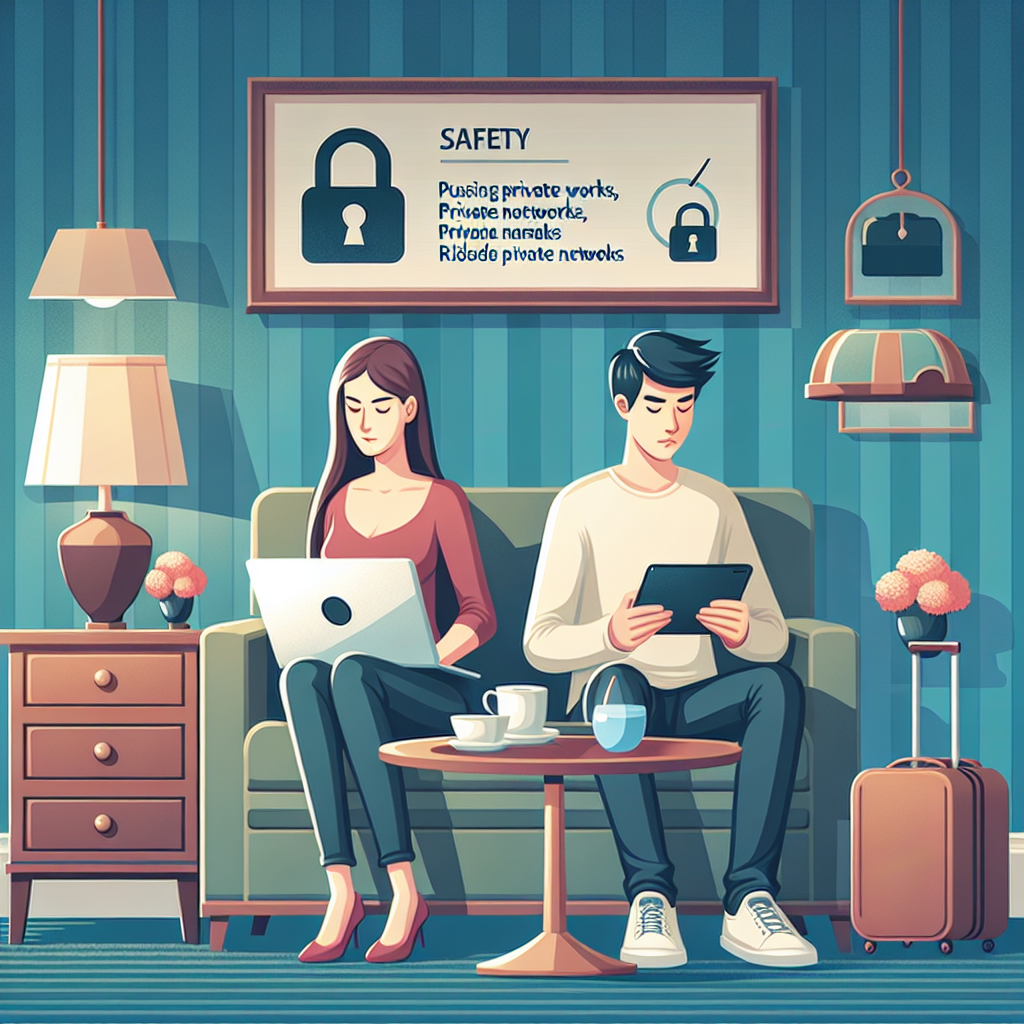Simple Steps to Stay Safe While Using Hotel Wi-Fi
Traveling often means relying on public Wi-Fi to stay connected. Hotel Wi-Fi is convenient but can be a hotspot for cyber-attacks. With the right precautions, you can secure your data and maintain your privacy while using these networks. This guide will walk you through the simple steps to stay safe while using hotel Wi-Fi.
Understand the Risks
Before diving into safety measures, it’s crucial to understand the potential risks associated with using hotel Wi-Fi.
| Risks | Description |
|---|---|
| Data Interception | Hackers can intercept unencrypted data transmissions. |
| Malware Distribution | Public networks can be used to spread malware. |
| Fake Hotspots | Cybercriminals set up rogue hotspots to steal information. |
| Man-in-the-Middle Attacks | Attackers can intercept and alter communication between users and websites. |
Use a VPN
Virtual Private Networks (VPNs) are one of the most reliable ways to secure your connection. A VPN encrypts your data, making it unreadable to anyone who might intercept it.
- Choose a reputable VPN service.
- Ensure the VPN is active whenever you’re connected to hotel Wi-Fi.
- Avoid free VPNs as they might not be secure.
Verify the Network
Always confirm that you are connecting to the hotel’s legitimate Wi-Fi network.
- Ask the front desk for the correct network name and password.
- Avoid networks that don’t require a password, as they are less secure.
Enable Two-Factor Authentication
Two-factor authentication (2FA) adds an extra layer of security to your accounts. Even if someone gains access to your password, they won’t be able to log in without the second factor.
- Activate 2FA on your email, banking, and other critical accounts.
- Use an authenticator app for better security instead of SMS-based 2FA.
Keep Software Updated
Ensure your devices and software are up-to-date to protect against known vulnerabilities.
- Regularly update your operating system, web browsers, and applications.
- Enable automatic updates where possible.
Use HTTPS
When browsing, make sure the websites you visit use HTTPS. This ensures your data is encrypted during transmission.
- Look for the padlock icon in the address bar.
- Consider using browser extensions that enforce HTTPS connections.
Avoid Sensitive Transactions
Refrain from accessing sensitive information or conducting important transactions on public Wi-Fi networks.
- Avoid online banking, shopping, or accessing confidential work files.
- Wait until you are on a secure, private network to perform these tasks.
Turn Off File Sharing
Public networks can expose your shared files to other users.
- Disable file sharing on your device before connecting to hotel Wi-Fi.
- Only enable file sharing when absolutely necessary and on a secure network.
Firewall and Antivirus Protection
Ensure your firewall is active and your antivirus software is current and regularly updated.
- Configure your firewall to block unauthorized access.
- Run periodic antivirus scans to detect and remove potential threats.
Log Out After Use
Always log out of your accounts when you are done using them, especially on shared or public computers.
- Ensure you sign out from all online services.
- Clear the browser’s cache and cookies after your session is over.
By following these simple steps, you can significantly reduce the risks associated with using hotel Wi-Fi. Staying informed and taking proactive measures will help you maintain your privacy and keep your data secure during your travels.

Leave a Reply